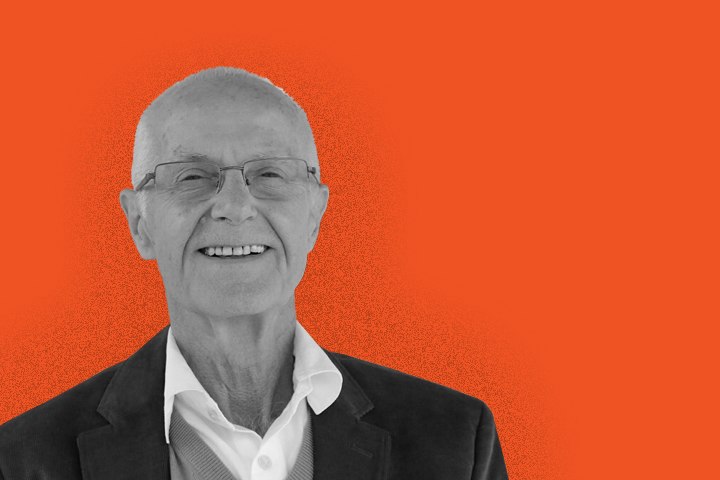“I wanted to make a profound difference in the lives of my students.”


Over the years, I’ve served as a public school teacher, a public school principal, and a superintendent of an 82,000-student public school district in Canada. In each of those capacities, I struggled at times to come to terms with how challenging teaching is and how it seemed to consume every fiber of my being—or my teachers’ being—to do the job well. There were many times in my career when I felt discouraged about being able to make a real difference in the lives of the children I taught, and there were times when things became so discouraging that I was tempted to leave difficult matters to fester, rather than worrying and strategizing about how to make things better.
I did not go into teaching because I was inspired that someday my students might name the capital cities of each state in the Union. I went into teaching because I wanted to make a profound difference in the lives of my students, especially those who had to overcome so many challenges at home—poverty, poor housing, unsafe neighborhoods, racism, and other social ills that can make life and schooling so difficult.
But I sensed while teaching that it was possible to run dry of the inspiration necessary to keep me at it, faithfully pursuing my dream that my students would become independent, responsible adults and kind, decent citizens of our democracy. It was hard not to give up in the face of adversity—not to give up when I felt overwhelmed; not to give up when I did not see much gain from all my efforts; not to give up when the challenges I faced as a teacher seemed to go unnoticed by anyone in authority, or when no one else seemed to care as much as I did. I think many teachers, including seasoned professionals, face mental fatigue trying to help all the students in their care become good people and good citizens who will contribute to flourishing communities.
Then I discovered last year that there was a place I could go to gain inspiration. The nonprofit Advanced Studies in Culture Foundation had established a website, CultureFeed.com, designed especially for teachers and principals, providing them news blogs, videos, and interviews that show how teachers and principals in the United States, Canada, and other countries are working to address moral formation issues in their schools.
These issues aren’t abstract. They’re the vices and virtues we see every day in our classrooms: bullying, cheating, and selfishness, as well as kindness, repentance, and civic engagement.
Why is Culturefeed.com valuable for me and other educators? Because it shows us that every day, in many schools across the world, educators like us are struggling with the same issues that we face, and they are making whole-hearted and successful attempts to make things better. It shows us how teachers and principals are identifying and implementing strategies to overcome negative outcomes in schools related to bullying, cheating, and other student behaviors that prevent our young people from developing into the kind of people we would want them to be.
I find these efforts inspiring. It nudges me to do the right thing even when my head suggests I should just lie low and let things go. In addition, the posts often cite research that addresses the very problems that plague teachers and principals. Some articles even suggest resources teachers and principals might use to address these problems.
This is why I’ve been working with CultureFeed’s producers in recent months to find content, edit articles, provide advice, and conduct interviews. Even though I am now retired, I do not want to abandon the dream of using education to produce not just scholars, but better people and a better world as well.
If you share that dream, I hope you find CultureFeed as worthy of your time as I do.
# # #